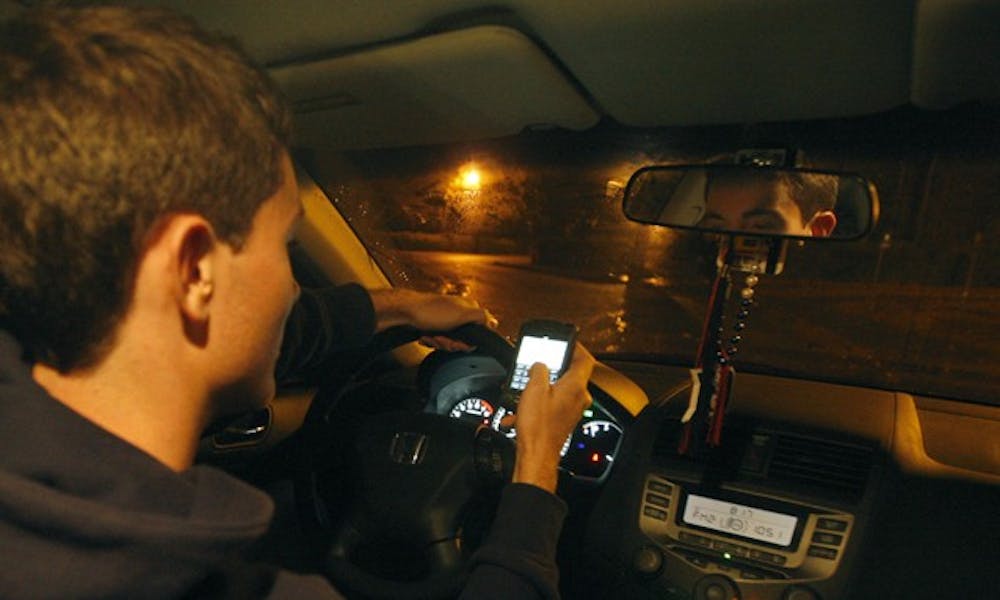Texters young and old will have to restrain their fingers while they drive or face a fine.
A law that prohibits sending text messages or e-mails with a cell phone while driving goes into effect in North Carolina today. Drivers caught violating the ban will receive a $100 fine. Drivers over the age of 18 may still place phone calls and use global positioning systems while at the wheel.
“The thing is... I want you to get home safe at night,” said State Rep. Garland Pierce, D-Scotland, who was one of the primary sponsors of the bill, which was signed by Governor Bev Perdue in June.
Texting while driving is a dangerous pastime that has been increasing in popularity over the past few years, said Jonathan Adkins, communications director of the Governors Highway Safety Association, a nonprofit organization that works with state and territory officials to address traffic safety issues. Given recent tragedies resulting from texting while operating motor vehicles, states have begun to take action and make texting while driving punishable by law, he noted.
“There are now 19 states that ban texting while driving and most states have passed the laws this year,” Adkins said. “There’s been a lot of media attention and a lot more visibility toward the issue of distracted driving.”
State Rep. Pricey Harrison, D-Guilford said most people agree the new law is necessary, but noted that it may be difficult to enforce.
Harrison said that because drivers over the age of 18 will be permitted to talk on cell phones while driving and use global positioning systems, cameras and music players, it may be difficult to distinguish between texting and legal phone features.
“It’s not going to be an easy law to enforce,” said Capt. Larry Smith of the Durham Police Department. “I think it’s gonna be an adjustment for a little while for the public.”
If there is evidence that an accident was caused by texting, there may be an additional increase in insurance premiums, which could be another incentive to refrain from sending text messages while driving, said North Carolina Insurance Commissioner Wayne Goodwin.
The infraction will not cause points to be added to a driver’s record, though, and the rate change would be on a case-by-case basis, Goodwin said.
Harrison is optimistic that the law will be an effective deterrent to those who send text messages while driving.
“The important message here is more that it’s a dangerous habit and one shouldn’t do it,” Harrison said.
Harrison and Pierce agree that the law has the potential to reduce dangerous driving due to texting.
Students are also confident that the law will cause drivers to cut back on texting while driving.
“I, for one, would not do it,” said sophomore Dea Park when asked if he would text while driving under the new law.
Many students said they have texted while driving in the past, but said they try not to.
A complete ban on cell phone use while driving may also be implemented in the future, though it would be much harder to sell to the public, Harrison said.
“Any type of distraction while driving is dangerous,” Pierce said.
Get The Chronicle straight to your inbox
Sign up for our weekly newsletter. Cancel at any time.

